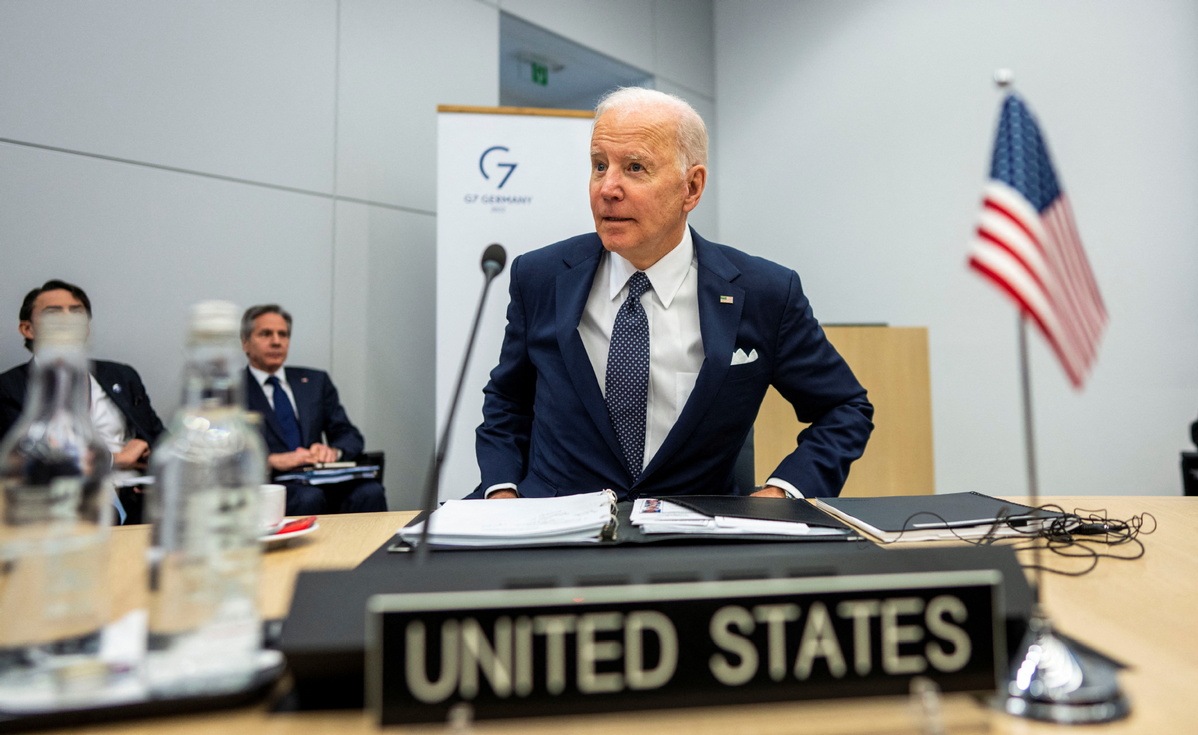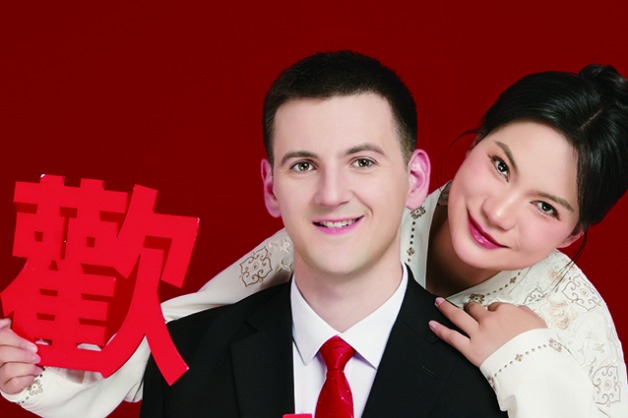Biden's day in Europe puts Ukraine issue in spotlight
By CHEN WEIHUA in Brussels | CHINA DAILY | Updated: 2022-03-26 07:50

Western leaders spoke of tougher sanctions against Russia for its military action in Ukraine at the three summits attended by visiting US President Joe Biden, but disagreements on key issues remain.
Biden spent all day Thursday attending three summits-with NATO leaders, G7 leaders and European Union leaders.
In a statement after the NATO emergency summit, the military alliance voiced full support for Ukraine and urged Russia to accept a cease-fire and negotiations.
A statement after the G7 leaders' meeting, which was also held in NATO's Brussels headquarters, warned Russia not to carry out its threat to use "chemical, biological and nuclear weapons or related materials".
A statement after a meeting of Biden and EU leaders said they discussed the coordinated and united response of the EU and the US to Russia's military actions and EU-US cooperation to reduce dependence on Russian fossil fuels.
In a news conference on Thursday evening, Biden said he had achieved the goal of "absolute unity" on three key issues among NATO and European allies, namely, supporting Ukraine with military and humanitarian assistance, imposing the most significant sanctions regime ever and fortifying the eastern flank of NATO allies.
Ding Chun, director of the Center for European Studies at Fudan University, said the military conflict erupting in Europe has affected EU states in multiple ways, such as the influx of refugees, gas price hikes and a blow to the EU economy, which has not yet recovered from the COVID-19 pandemic.
"The EU and the US are not all the same in their approaches to the current situation,"Ding said, adding that the EU's energy dependence on Russia won't be resolved in the short term.
"While EU member states are united in opposing Russia's military actions, they have differences regarding the extent of economic sanctions," he said.
Unlike the US and Britain, EU leaders have not set a deadline to phase out Russian fossil fuels despite their pledge to reduce dependence on Russian energy.
Russia now supplies about 45 percent of EU gas imports, 25 percent of oil imports and 45 percent of coal imports.
While some Eastern European and Baltic states have called for an oil embargo on Russia, German Chancellor Olaf Scholz said that to stop using Russian fuels "from one day to the next would mean plunging our country and all of Europe into recession".
Belgian Prime Minister Alexander De Croo warned at the EU summit that an immediate and total ban of Russian oil and gas would have a "devastating impact" on the European economy.
"We are not at war with ourselves," he said.
On Thursday, Ukrainian President Volodymyr Zelensky again appealed for EU membership in his virtual address to the EU summit.
However, EU leaders just repeated their statement from a summit earlier this month in Versailles, France, to ask the European Commission to submit its opinion according to the EU Treaties.
Dutch Prime Minister Mark Rutte put a damper on Kyiv's hopes, saying in the early hours of Friday morning when leaving the European Council building that "EU accession is a process" and "there is no fast-track procedure for accession".
"If we were to do that, we would turn the access process into a political process, and that shouldn't happen," he said.
Agencies contributed to the story.
























